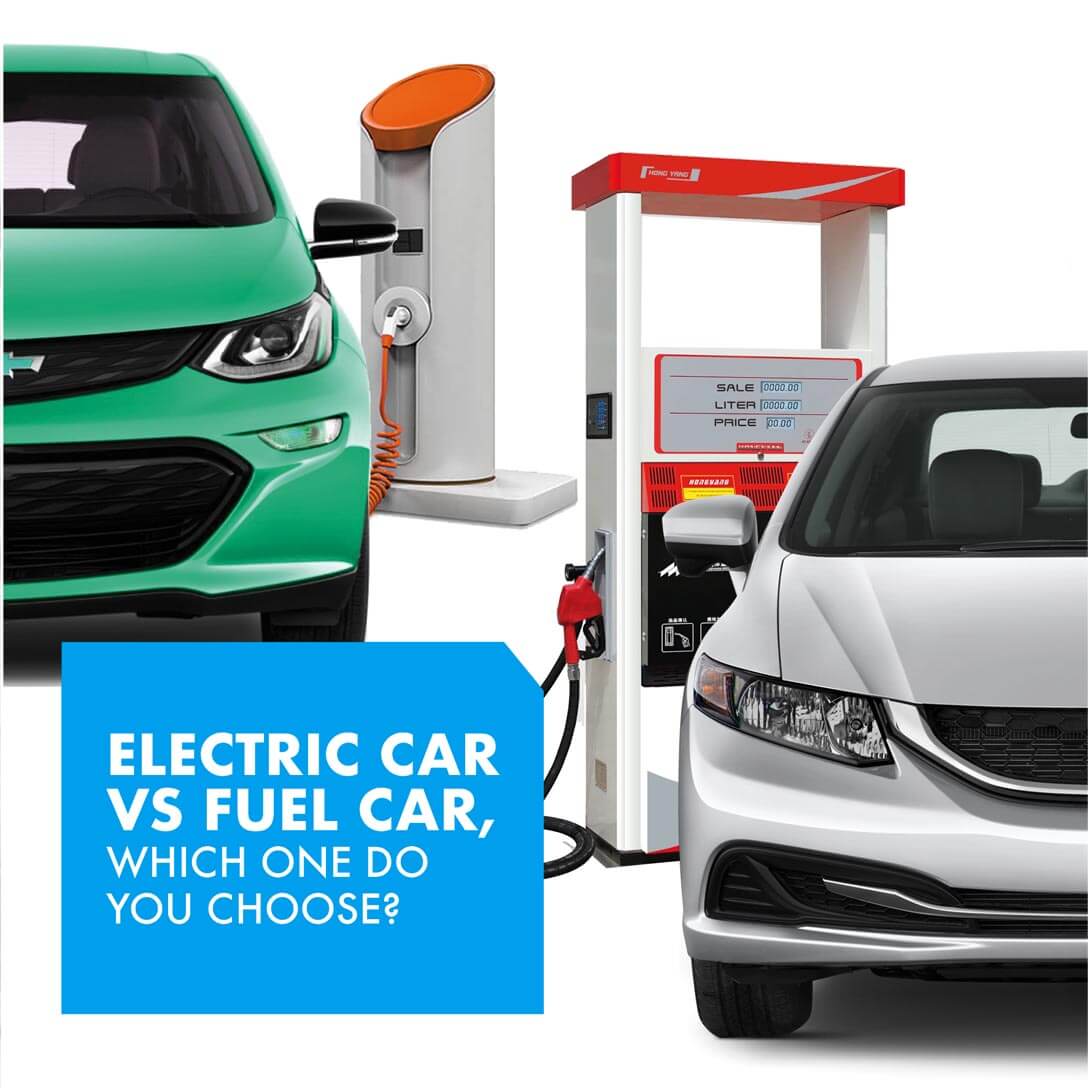
Electric Car Vs Fuel Car, Which One Do You Choose?
Various countries in the world have started to issue transportation policies to reduce carbon emissions. For example, Japan plans to ban the sale of cars with pure conventional engines by 2030. The country is targeting the use of zero-emission vehicles by 2050.
Electric cars are considered to be a solution to this carbon problem. In Indonesia, several electric car products have started to enter since last year. Actually, what are the advantages and disadvantages of using electric cars when compared to fuel cars in Indonesia?
- Resources
Conventional cars use fuel oil or gasoline as the main driving force for the car. Fuel is supplied to the engine to go through the combustion process. From this combustion process, energy will be generated to move the piston. The piston performs a linear motion which is transferred into a rotary motion by applying a slider-crank mechanism. Only then is there a transmission for transferring the rotary motion to the drive wheels.
Meanwhile, the energy source for electric cars comes from batteries. In electric cars, there is inverter technology that converts DC battery power into three-phase AC. Well, these three AC phases will change the induction motor so that it can activate the drive wheels.
- Engine Efficiency
Oil-fueled cars need a transition mechanism to control the speed of the car. The existence of an internal combustion engine will also cause difficulties at low rotations per minute (RPM). A car engine cannot start on its own, so a DC motor is needed to bring the engine to optimal RPM.
While electric cars do not require a complex transmission. The speed can be directly controlled by the motor. Not only that, but the electric car also generates a lot of torque even though it is just started, considering the fast response.
- Costs
Electric cars are synonymous with high prices. However, the costs incurred daily are cheaper than fuel cars.
If a conventional car consumes 1 liter of gasoline to travel 10 km. With a non-subsidized gasoline tariff of Rp. 9,000 / liter, the cost incurred to travel 100 km is around Rp. 90,000.
Meanwhile, an electric car is ideally capable of traveling 100 km with a power of only 20 kWh. If the non-subsidized electricity rate is around IDR 1,600 per kWh, then an electric car only requires an energy cost of around IDR 32,000 for a 100 km distance.
Read More:
- Charging
Refilling fuel only takes a few minutes. It is different from electric car battery charging which takes 1-3 hours. Also, electric car charging stations are newly discovered in big cities. These conditions make it difficult for the electric car to be used for long-traveled characters at this time.
- Maintenance
Both petrol cars and electric cars need regular maintenance. Fuel cars require changing oil or spark plugs, while electric cars don’t need them. However, electric car owners still need to pay attention to the condition of the battery. Unfortunately, electric car repair shops and battery manufacturers in Indonesia are only now available in big cities.
About SGU
SWISS GERMAN UNIVERSITY (SGU) is an international university in Indonesia, was established in 2000 as a joint effort between Indonesia, Germany, Switzerland, and Austria. We are the pioneer in offering international curricula in Indonesia.
Qualified students can graduate with a Double Degree from Indonesia and Germany, which SGU provides in cooperation with partner universities; surely a valuable tool for your future careers. Ever since its establishment, SGU has been dedicated to delivering quality education in line with international standards and aims to develop skilled professionals who meet the demands of the industry. To achieve its objectives, SGU offers quality-oriented learning through 12 Bachelor’s Degree Programs and 4 Master’s Degree Programs ranging from Engineering, Information Technology, and Business to Life Sciences and Social Sciences. Furthermore, with small class sizes, and with English as the medium of instruction, you can look forward to pursuing your tertiary education and degree with full confidence.
Back
